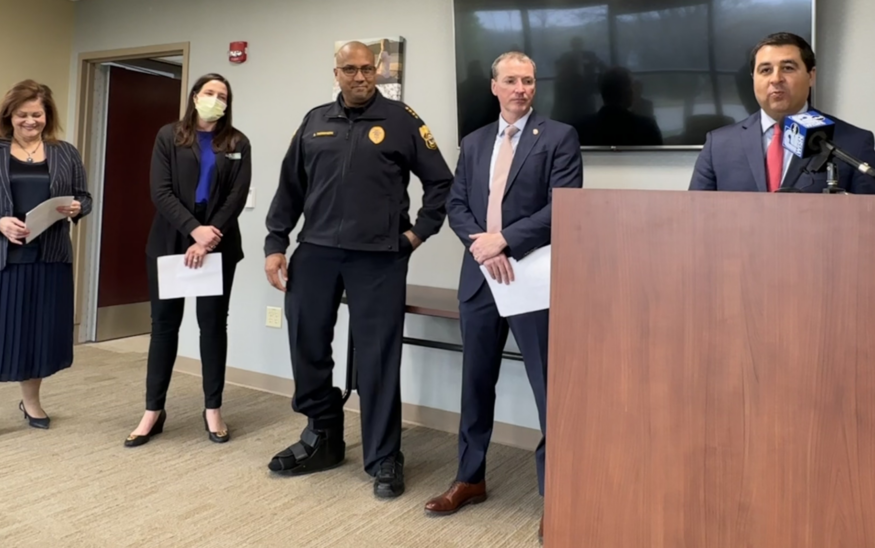Wisconsin ranks number one in national Drug Take Back Day
By: Steve Schuster, [email protected]//May 29, 2024//
Wisconsin ranks number one in national Drug Take Back Day
By: Steve Schuster, [email protected]//May 29, 2024//
Wisconsin once again ranked number one throughout the entire nation for the most prescription medications collected during the Spring 2024 Drug Take Back Day, the Wisconsin Department of Justice announced Wednesday.
Updated United States Drug Enforcement Administration (DEA) data reveled Wisconsin collected the most unwanted medications throughout the country this spring, totaling 55,122 pounds. Initial data reported incorrectly that Wisconsin ranked number two.
“Because of Wisconsinites who safely disposed of their unwanted medications, Wisconsin’s remarkable success with the Drug Take Back program has continued,” said Wisconsin Attorney General Josh Kaul.
“Thanks to everyone who helped make the safe disposal of more than 55,000 more pounds of unused medication possible,” Kaul added.
According to WisDOJ officials, Wisconsin has collected a total of 1,257,161 pounds of unwanted medications since Drug Take Back began in 2010 under the leadership of the DEA.
Overall, Wisconsin ranks third in the nation for the most medications collected since inception, falling only behind Texas with 1,424,295 pounds and California with 1,404,998 pounds collected, WisDOJ noted.
To date, 18,570,487 pounds of unwanted medications have been collected nationally during Drug Take Back events.
The DEA leads two Drug Take Back days a year, one in the Spring and one in the Fall. DOJ partners with the Wisconsin Department of Health Services (DHS) to organize and promote Drug Take Back throughout Wisconsin.
“Drug Take Back provides a safe, convenient and responsible means of disposal, while also educating the community about the potential abuse and consequences of improper storage and disposal of these medications,” officials said.
As previously reported by the Wisconsin Law Journal, ‘one pill can kill.’
“I would just like to remind everybody that one pill can kill and drug takeback is an opportunity for citizens across the United States and Wisconsin to both free and anonymously dispose of unwanted medications in kitchen drawers, in bathroom drawers, in medicine cabinets. There are no (legal) consequences for the drop off,” said U.S. Drug Enforcement Administration (DEA) Special Agent John McGarry, who is the special agent in-charge of the DEA Wisconsin’s largest office.
McGarry made the remarks in April of 2023 at a press conference in suburban Milwaukee. According to McGarry, the drug takeback program has been in place since 2010.
In McGarry’s 2023 comments he noted, “This is our 24th (drug takeback). In these 24 iterations we have seized with our partner from state and local agencies, 8400 tons of illicit pharmaceuticals across the U.S. and U.S. Territories. That’s pharmaceuticals that would otherwise go into landfills or water supplies, have a big environmental impact or would otherwise sit in bathrooms and kitchens in drawers and car consoles across the country giving access to folks that shouldn’t have them.”
Wisconsin’s Spring of 2024 Drug Take Back Day occurred the same week as federal officials reported alleged Sinaloa Cartel leader Néstor Isidro Pérez Salas, also known as El Nini, 32, of Mexico, was extradited on May 25, 2024 from Mexico to the United States to face charges contained in two indictments.
“Today, El Nini joins the growing list of cartel leaders and associates extradited to the United States and held accountable in an American courtroom,” said Attorney General Merrick B. Garland in a statement.
“We allege El Nini was one of the Sinaloa Cartel’s lead sicarios, or assassins, and was responsible for the murder, torture, and kidnapping of rivals and witnesses who threatened the cartel’s criminal drug trafficking enterprise. This includes killing a Drug Enforcement Administration (DEA) confidential source and killing others in retaliation for the confidential source’s cooperation. We also allege El Nini was a part of the Sinaloa Cartel’s production and sale of fentanyl, including in the United States. I am grateful to our Mexican government counterparts for their extraordinary efforts in apprehending and extraditing El Nini. The Justice Department will always be relentless in its pursuit of the cartels responsible for flooding our communities with fentanyl and other drugs,” Garland added.
According to U.S. Department of Justice officials, the first indictment, filed in the District of Columbia by the Criminal Division’s Narcotic and Dangerous Drug Section (NDDS), charges Pérez Salas with cocaine and methamphetamine importation, firearms offenses, and conspiracy to obstruct justice through murder. The second indictment, obtained by the Wisconsin Law Journal, was filed in the Southern District of New York (SDNY), charges Pérez Salas with leadership of a continuing criminal enterprise resulting in the deaths of numerous victims, including a confidential source for the DEA, fentanyl importation and trafficking, obstruction of justice by murdering an informant, kidnapping resulting in the deaths of eight people, including a minor boy, firearms, and money laundering offenses.
Pérez Salas was arrested in Culiacan, Mexico, by Mexican authorities on Nov. 22, 2023. Pérez Salas was presented on the charges contained in the SDNY indictment Tuesday at 10:30 a.m. before U.S. Magistrate Judge Ona T. Wang.
According to court documents, the Sinaloa Cartel is one of the most powerful drug cartels in Mexico and is responsible for a substantial portion of the fentanyl that is manufactured and imported for distribution in the United States. Fentanyl is a dangerous synthetic opioid that is more than 50 times more potent than heroin and is the leading cause of death for Americans ages 18 to 49. In recent years, the cartel has been led, in part, by the sons of the cartel’s notorious former leader, Joaquin Archivaldo Guzman Loera, also known as El Chapo, and Ivan Archivaldo Guzman Salazar, Jesus Alfredo Guzman Salazar, and Ovidio Guzman Lopez—known collectively as the “Chapitos.”
According to federal officials, like their father, the Chapitos have used violence and rely on a sophisticated security apparatus to maintain control and to protect themselves and their operations as they traffic massive quantities of narcotics, including fentanyl, cocaine, and methamphetamine, to the United States.
According to Wisconsin officials in 2024, Drug Take Back Day would not be possible without the support of Fuchs Trucking, Reworld, the Wisconsin State Patrol, Wisconsin Department of Military Affairs, Waukesha County, Waukesha County Sheriff’s Office, and all participating local law enforcement agencies.
WisDOJ officials noted while Drug Take Back Day technically only happens twice a year, any day can be Drug Take Back Day at one of Wisconsin’s more than 490 permanent drug disposal boxes.
The boxes are accessible year-round at law enforcement agencies, hospitals, pharmacies and health clinics.
To find a permanent drug disposal box near you, visit https://www.dhs.wisconsin.gov/opioids/permanent-drug-drop-boxes.htm.
Legal News
- Biden called to resign immediately after the president announces he won’t seek reelection
- Biden drops out of 2024 presidential race, endorses Harris
- Local PA cops allegedly thought Trump’s would-be assassin was Secret Service
- Biden-Lead Secret Service admits agency denied past requests by Trump’s campaign for tighter security
- Class action filed against Walgreens
- Former Waukesha County Sheriff’s Office lieutenant pleads guilty to smuggling contraband
- Two dead, one injured after Ozaukee County water rescue
- RNC Final Day: Trump accepts GOP Nomination
- Wisconsin officials intervene in Planned Parenthood action
- 7th Circuit adopts modifications to Rules 31, 34, 40, 47 and 60
- MPD issues statement on outside agency officer assignments
- Teen charged with stealing Trump campaign team SUV from Pfister Hotel
Case Digests
- Absentee Ballot Drop Boxes
- Separation of Powers- Legislative Oversight of Executive Actions
- Notice of Recommitment and Involuntary Medication Hearings
- Firearm Possession-Sufficiency of Evidence
- Motion for Substitute Counsel
- Jury Instructions
- Equal Credit Opportunity Act
- Fourth and 14th Amendment Rights-Parental Medical Neglect
- Eminent Domain
- Intrusion Upon Seclusion Claim-§1983 claim
- Employment Law- Title VII
- Employment Law












